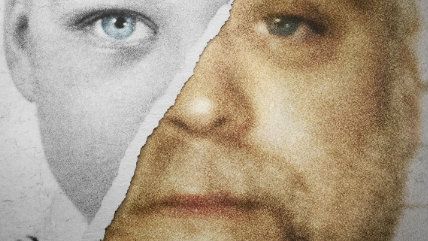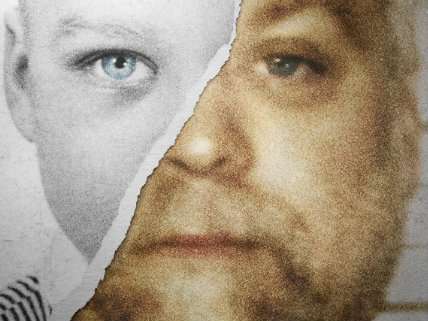More Than 200,000 Petition for Release of Making a Murderer Star Steven Avery
Can this Netflix docuseries right the wrongs perpetrated by a corrupt criminal justice system?


A "tragic lack of humility" in our criminal justice system sits at the heart of the new Netflix docuseries Making a Murderer. Released December 18, 2015, the 10-years-in-the-making show has taken almost no time to stir up public support for Steven Avery and his young nephew Brendan Dassey, with hopes of forcing the White House or Wisconsin Gov. Scott Walker to respond.
Avery, now 53, has spent the better part of his adult life in prison. The series picks up upon his 2003 release, after serving 18 years for the violent rape of a fellow resident of Manitowoc County, Wisconsin—a crime that DNA analysis impossible at the time of his 1985 conviction eventually shows Avery did not commit.
This wrongful rape conviction wasn't the result of some vengeful ex or whatever else stereotypes might conjure. A wealth of evidence suggests Avery was failed by the Manitowoc County Sheriff's Office's single-minded commitment to proving and maintaining his guilt. By fall 2005, Avery was in the midst of a major lawsuit against Manitowoc County, with individual liability at stake for various local officials.
That's when—spoilers ahead—he was arrested and charged for the murder of Teresa Halbach, a 25-year-old auto-mag photographer. Halbach had been by the Avery family junkyard to take pictures of a car there before disappearing and, eventually, having her cremated remains discovered behind Avery's trailer. The bulk of Making a Murderer involves the investigation and trials surrounding Halbach's death, in which Dassey, then 16, was also implicated.
While the events of Making a Murderer may stem from extraordinary actions, the series' indictment of our criminal justice system spreads far beyond a few corrupt individuals. Near the end of the series, Dean Strang, one of Avery's two defense lawyers during his 2007 murder trial, speaks of the "tragic lack of humility of everyone who participates" in the system. It isn't just corrupt cops or ass-saving prosecutors who failed the Avery family but every judge, juror, court official, bureaucrat, member of the media, citizen of Manitowoc county, and anyone else who failed to allow, at so many steps of the way, that they or authority figures might just be wrong.
Other notable things about the series:
People are pissed—and officials might have to take note: The release of Making a Murder's has inspired thousands of people to sign onto petitions for Steven Avery's pardon. Both Avery and Dassey are currently serving life in prison for Halbach's murder.
A Change.org petition to "Free Steven Avery" had garnered more than 200,000 signatures by the evening of January 4th and more than 20,000 people have signed a White House petition asking President Obama to pardon Avery and Dassey.* "If the government petition collects 100,000 signatures by January 16, then the White House has to respond publicly," Time reports. The president, however, cannot pardon people for state crimes.
It highlights the role of mental illness and intellectual disability in matters of police misconduct: Making a Murderer highlights many, many deficiencies in America's criminal justice system, but one that sticks out most is the way law enforcement exploits individual vulnerabilities and limitations for easy convictions. Dassey is just 16 when he is interviewed by Manitowoc County cops several times in the absence of either his mother or a lawyer; the cops subsequently asserted that the mom had agreed her son could be interviewed alone, although she disputes this claim.
During his early experiences with law enforcement, even Dassey's lawyers treat him like little more than an asset in the state's case against Avery. You really just have to watch to believe the way detectives and lawyers lead Dassey to "confess" to heinous crimes, and how little Dassey comprehends the seriousness of what he's saying. But while Dassey's situation may seem extraordinary, minors are routinely interrogated about serious crimes without a lawyer or parent present. In an analysis published in the journal Law and Human Behavior in 2014, none of 57 teens in 17 different areas had a lawyer present during interrogations, and only 12 teens had a parent around.
(Though the circumstances are way different, Dassey's treatment reminded me of another recent miscarriage of justice as a result of police pressure on vulnerable teens, which ProPublica and The Marshall Project tell exquisitely here.)
Dassey and Avery's lower-than-average IQs are also relevant. Steven Avery had an IQ of 70, which falls into the "borderline deficiency" range and just above the threshold to be labeled intellectually disabled. His nephew, Brendan Dassey, also had severely below-average intelligence, poor social skills, and limited reasoning ability. Low-IQ, mentally ill, or generally "neuroatypical" people are frequent targets of police violence—about one in four Americans fatally shot by police last year were mentally ill, according to the report released in December by the Treatment Advocacy Center—and of suspicion and conviction for crimes they didn't commit.
In cases where DNA evidence has exonerated people, roughly 30 percent involve false confessions, according to the Innocence Project. In many of these cases, the suspect was someone of questionable intelligence who seemed unaware of the seriousness of their situation. But as Dassey's case makes clear, once given, a confession holds more weight than recanting it hundreds of times.
Events like those in Making a Murderer aren't all that rare: The Center for Prosecutor Integrity estimates that 43 percent of wrongful convictions result from misconduct involving prosecutors and other law-enforcement officials. And even when exposed, state wrongdoers receive little sanction. Of more than 3,000 cases of prosecutorial misconduct at the state and federal level over the past 50 years, sanctions were imposed less than 2 percent of the time.
* Updated to reflect increase in petition signers.


Show Comments (53)